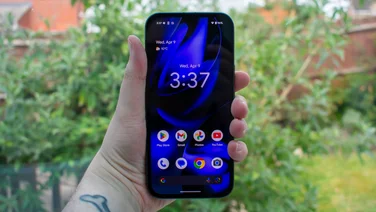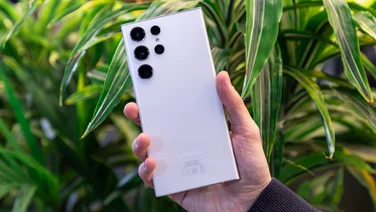To help us provide you with free impartial advice, we may earn a commission if you buy through links on our site. Learn more

The latest shiny things are here but there’s an inevitable sense of déjà vu. The Sony Xperia Z3 has been announced just six months after the Xperia Z2 launched, while Samsung continues to spew out a dazzling array of new handsets at dizzying speed.
Upgrades are predictably incremental with manufacturers shaving off the odd 1mm in thickness or upping the battery by 200mAh. The shiny things being announced today are the same shiny things that were announced last year and the year before. We are told they are quicker, better and more dazzling than ever before. But they are not.
Innovation, even taking into account the bizarre Samsung Galaxy Note Edge (pictured below), is creaking to a halt. We are left with handsets that are designed to fail yet cost us hundreds of pounds. The bravado of big mobile phone companies has become obscene. This latest phone, this one above all others, will change your life, give your husband better teeth and make your children more angelic.

Rest assured, the shiny things announced today by Sony and Samsung, along with similar slabs from rival companies, will be hauled to land-fill in record time. Phones and tablets released just months ago are now old hat. Updates stop, support ends, the battery dies, the screen freezes, the camera fogs over and it splutters its last.
And then you buy another Samsung phone. Devices like the Galaxy Note 4 and Xperia Z3 are engineering marvels – they are sleek, elegant and stupendously fast but they are intentionally flawed.
Why does Samsung stand up every year and triumphantly announce the most amazing phone ever built? So it can do the same thing next year. True innovation will come when a company is brave enough to make a phone that lasts.
But obsolescence has seemingly become the go-to business model for smartphone and tablet manufacturers. If you buy a phone and it works perfectly for five years you won’t buy another one. But if that same phone slows down to a crawl and doesn’t hold its charge after two years? You’ll cough up more money.

Maybe Google can change all that. Project Ara, its modular smartphone, is set to launch in January 2015 and cost around $50 (£30). The handset can be upgraded and improved by adding new modules that slot into the main chassis. Project Ara is innovative, a smartphone with a few more pixels and a thinner bezel is not.
Technology companies, driven by ferocious corporate greed, are only interested in innovation to a point. Seven years after the first iPhone launched we’re still being force-fed expensive slabs of plastic that are built to fail. How’s that for progress?




